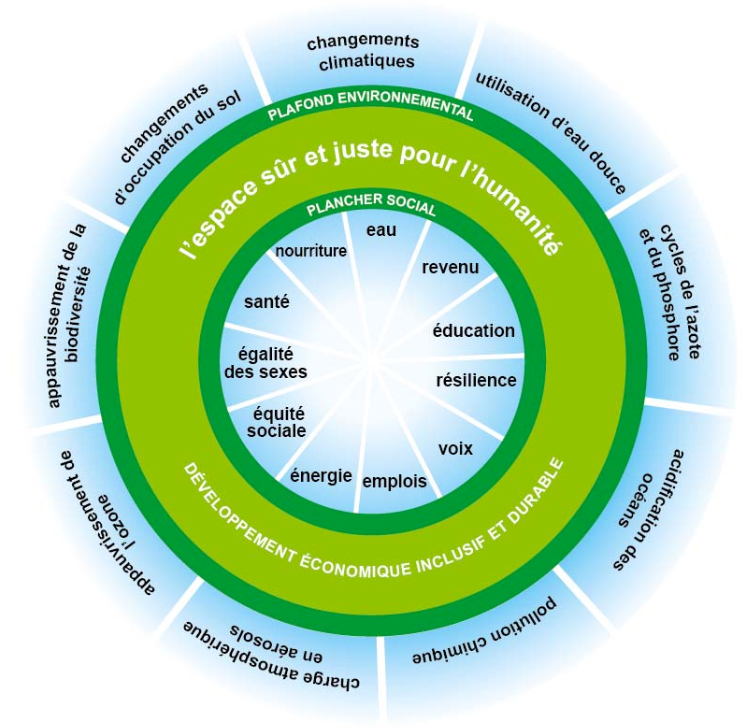Data in tourism
Data in tourism, welcome to a new series of articles on Tourism and data.
“Suppose a novice chess player faces a seasoned opponent. He would lose, as one might expect, precisely because he made worse decisions — when some good advice would have easily improved them. In many areas, ordinary consumers are newbies to a world of seasoned professionals who are just trying to sell them merchandise. »

Richard Thaler
Nobel Prize in Economics
With this sentence from Richard Thaler, Nobel Prize winner in economics and father of Nudge, who does not talk about data at all, we can begin our reflection on the very usefulness of collecting data in the field of Tourism.
Since the advent of mass tourism in the 60s (we are talking about the 20th century for the youngest, logical… The 60s of the 21st century, we risk never seeing them…), the idea is to welcome as many tourists as possible in our beautiful country (2/3 of tourists are endemic to France…) and if possible in two very distinct seasons, winter in the mountains and summer at the sea. That’s good, President De Gaulle (for the youngest, he was a general before becoming President, and yes… the Avenue of your commune, it’s in his name….) has planned to build with the help of the state, large resorts in remote, arid, inaccessible areas a priori and where the population density, given the current standard of living (at the time) will be very happy to see people take an interest in them. So we’re going to create ski resorts with highways and trains that take us there with big bars of concrete buildings, and on the coast, even if there are too many mosquitoes, we can make thousands of campsites in arid areas (that’s good, it’s all flat). And as we had a bit of concrete left over from winter, we take the opportunity to lay architectural works of art (fashion passes quickly…) to turn them into summer resort towns which, the rest of the year , will be returned to mosquitoes. I schematize but the model still works. To all this, we add the tourism that has already existed since the end of the 17th century and voila. Our tourism sector is in working order and is growing all over the world (Bali, the Overseas Islands, the Club Meds on the Moroccan or Senegalese coasts, etc…).
At this precise point, you have to say to yourself, he wants to talk to us about data and he tells us his old story, which is very caricatural. It’s normal, we forgot to put indicators in this magnificent development since we were too busy pouring concrete. And without indicators, it becomes difficult to count or reference anything.
So, we’ve created a tourism industry model that works, but we forget to count and reference? Yes completely. And when we talk about cold beds in interdepartmental committees, we have to be reassured that it is not new. The cold bed has been there since the beginning, you know, when we only came to the mountains for Christmas and for the children’s holidays in February. The rest of the time the shutters are closed and we went camping by the sea via the new Autoroute du Soleil, the A7, with the R12 fully loaded.
So why worry about it now you say? It’s that the world has changed and that this tourism which sat on its laurels has been overtaken by private operators, sidelining the territories of their own economy, leaving them only crumbs and they are very happy to still have them because at the slightest sign of municipal rebellion, we take out the card « If you are not happy, we can leave… ».
It’s not that easy, will you answer me. Indeed, but we have to start with something so that Tourism can once again evolve. Especially at a time when climate change is going to have to seriously infuse a new paradigm into modern tourism.
Data in tourism

It’s also a matter of law
And this is where the tourist data must intervene! I go back to my introductory quote from Richard Thaler, « a few sound advice would have enabled him to improve them easily ». Ask your elected representative, your director of the Tourist Office, how many furnished apartments he has on his territory. He doesn’t know the number and risks coming out with his speech, all those who go through Airbnb, we don’t know them…. As the first magistrate of a territory, his sentence stings a little since, according to the law, the declaration of a furnished tourist accommodation, whether it is classified or not, is compulsory. However, if the furnished tourist accommodation is the main residence of the lessor, it is exempt from simple declaration. The main residence means housing occupied for a minimum of 8 months per year, except for professional obligations, health reasons or cases of force majeure. The lessor must make his declaration to the town hall of the municipality where his furnished accommodation is located, using the CERFA form n°14004*04. He receives an acknowledgment of receipt. And I pass the tax deduction to which the owner is entitled and the limit of 120 days of rental per year not to be declared professional rental…
Did we talk about AirBnb in there? No, we are talking about a sovereign repository which must contain all the data of the territory’s residential stock. This could avoid using concrete again in new construction programs and allow the territories to set up much more efficient re-letting aids.
But for that, it is necessary to toughen the laws! Ensure that fines for landlords who remain hidden behind their OTAs can be updated and taxed like everyone else on their rental earnings. That OTAs only accept properties that are first referenced in their rental territory. It would be a good start. That these furnished apartments declare the collection of their tourist taxes.
Data in tourism

In the end, everyone would have to win. The owner is declared and considered by his territory as a contributor to his economy and his social life (the tourist jobs generated by the activity in season). OTAs ease a situation that will not last in the long term with tourist territories and municipalities regain their role of guarantor of legislation, and can make the right decisions by knowing the use of their residential stock in real time.
To achieve this, pooling tourist data has a long-term interest, making territorial data a safeguard. Why pursue a policy of building new beds when you have a 50-year heritage of residences that simply deserve renovation and advice to be put back on the market? It is enough to know them and to animate this network.
We are talking about Overtourism. For that, the tourists have to sleep somewhere. By knowing the indicators of the tourist territories, not their frequentation, but their instantaneous maximum potential of occupied beds, there, we can act on this phenomenon. But for that, you have to count.
You have the impression that I have not spoken to you about tourist data in this article? At first glance no, it’s true… and yet the data is everywhere. Tourist beds, their referencing, renovated or not renovated, the number of jobs they generate in a destination, the consumption of raw materials they can make or the carbon they reject, the waste they generate and how to process them, the data is everywhere in the tourism ecosystem. You just have to use it to get to know our territories better.
Oh, by the way! I didn’t tell you about the 90 million visitors to France each year, that’s a fact too! The influence of tourists in transit through airports on this figure, customer satisfaction which remains to be measured, the distribution of these 90 million and their mobility or seasonality. Tourist data is not always a matter of attendance or fans on a social network, it goes much further.
In short, you understood it well, it was only the first article of a long series which will give me the opportunity to write again on this subject of Tourism and Data 😉
The Alps agency accompanies throughout the year a good number of territories in their strategies or their reflections that make the difference. Do you want to know our references? Contact us
You wish to organize a conference on this theme, contact us too, we will analyze your needs together.
You can read all the other articles of the Alps Agency in the Blog section and discover all the services we can offer you.
This article was written by François Veauleger



